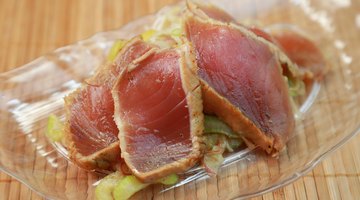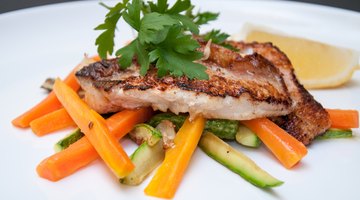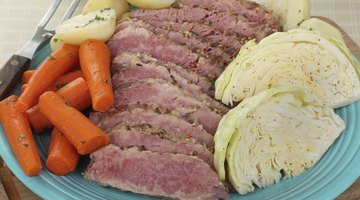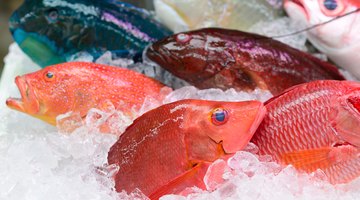Can Pregnant Women Eat Calamari?
What Do Doctors Say About Eating Calamari and Other Seafood During Pregnancy?
It's easy for a pregnant woman to become confused about what she should and should not eat, especially when it seems as if everyone follows a different set of rules. Confusing matters is the fact that the verdict on safety for individual foods falls into four different categories: "yes," "no," "in limited amounts," and "it depends." In general, calamari (squid rings) is a "yes," as doctors say it is perfectly safe for pregnant women to eat. However fish and seafood as a category is not so simple, with concerns about mercury levels, freshness and susceptibility to contamination all coming into play. Knowing the up-to-date guidelines for pregnant women about consuming fish and seafood will ease your mind.
Is Calamari a Safe Choice?

Is Seared Tuna Safe in Pregnancy?
Learn More
So long as it's fresh and fully cooked, calamari is safe for pregnant women to eat. If you're concerned that squid is only usually cooked for a matter of minutes, don't be. Whether it's deep-fried or simmered in a stew, calamari becomes thoroughly cooked in a very short time. To err on the side of caution, only eat calamari (and other fish and seafood dishes) at restaurants you trust to have impeccable food safety standards. If you're buying raw calamari from a fish market or supermarket to cook at home, make sure it's very fresh or frozen, keep it refrigerated and cook it within 24 hours of purchase. You can ask the fishmonger how recently the squid you want to buy was caught or thawed. Again, only buy from vendors you know and trust.
Is Calamari a Healthy Choice?
Squid is a very good source of protein, vitamin B12 and several other important nutrients, and by itself is very low in fat. Mercury levels in squid are not a concern. If it's grilled, steamed or sauteed with a minimal amount of oil it's a very healthy choice. Other healthy preparations for calamari include tomato-based stews, such as cioppino, or pasta dishes with tomato-based sauces. The most common preparation for calamari—breaded, floured or battered, deep-fried and served with dipping sauces—is not so healthy because it's very high in fat. Unless your doctor has advised you to avoid fatty foods altogether, go ahead and enjoy fried calamari as an occasional treat, in reasonable portion sizes.
What About Other Seafood and Fish?

What Seafood Can You Eat When Pregnant?
Learn More
Doctors agree that certain types of fish and seafood should not be eaten by pregnant women at all. Raw fish and shellfish, and refrigerated, smoked seafood such as lox, should not be eaten because they are especially susceptible to listeria, which is very dangerous during pregnancy. You also should not eat fish caught locally by non-commercial fishermen unless you can be certain it came from an unpolluted body of water.
The FDA encourages pregnant and breastfeeding women to eat more seafood as it is packed with nutrients, including iron, protein and omega-3 fatty acids, that are beneficial for fetal and infant development as well as maternal health. Specifically, the FDA recommends eating two to three servings of low-mercury fish and seafood per week. Examples of low-mercury fish and seafood include cod, shrimp, tilapia, catfish and salmon. Canned white (albacore) tuna should be limited to 6 ounces per week, but canned light tuna does not need to be limited. Doctors say to avoid the following types of fish altogether during pregnancy and while breastfeeding due to high mercury levels: tilefish, swordfish, shark and king mackerel.
Related Articles
- NHS Choices: Fish and Shellfish
- SELFNutritionData: Mollusks, Squid, Mixed Species
- Mayo Clinic: Pregnancy and Fish: What's Safe to Eat?
- Academy of Nutrition and Dietetics: Seafood Do's and Don'ts When Pregnant
- American Pregnancy Association: Mercury Levels in Fish
- American Pregnancy Association: Foods to Avoid During Pregnancy







